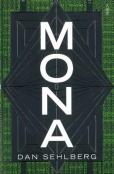Good things come, as the saying goes, in small packages.
The End of the World is a precise and economical collection of poems by Maria Takolander presented in a neat little 78 page paperback. It’s Takolander’s third poetry collection, following on from Narcissism (2005) and Ghostly Subjects (2009).
Takolander’s poems are excruciatingly daring, despite some every-day domestic subjects.
The first two poems ‘Unborn’ and ‘Post-partum’ are linked in exactly the sense that the titles suggest. Poetry can often seem inaccessible but I was instantly seduced by the recognizable in the surreal animal-ness of these poems about motherhood.
The very first stanza (Morning Sickness) of the first poem (Unborn) is a tour de force. A newly pregnant woman dreams of a sow giving birth to a litter. ‘…their lids were serene,/as if eyes did not exist, and their ears were closed/to the sound of their own not screaming…’ The two other stanzas ‘Ultrasound’ and ‘Foetal Movement’ continue the pregnancy journey. What modern-day mother (or father) wouldn’t relate to seeing the first grainy pictures of their baby: ‘As I watch you shadow box with sourness, radiance and din,/the sources of which you must fear like a medieval Christian,/.’ It’s all here in these two poems: the joy, the blood, the recognition, the pain and violence. Every word perfectly precise, perfectly descriptive, perfect.
The motherhood theme continues in this collection (which Takolander has dedicated to her son) and, in ‘Night Feed’, the baby is a ‘time traveller at my breast’. Once again, the poet is tapping in to the universal experience through the deeply personal for haven’t we all wondered where babies have been, what knowledge they are coveting, what their slot is in time and their place in relation to ourselves?
As two little girls in their pyjamas navigate the aftermath of violence in ‘Domestic’, we are confronted with the interior of a broken TV which looks ‘bereft’, and the mess of a broken pot plant with its soil and roots and shards of terracotta littering the room ‘as if Triffids had escaped.’
The collection unfolds naturally, from the deeply personal (a woman’s body, a mother and a baby, a family broken) outward to the wider world of alien surrounds and different countries, wars and dead relatives, to Stalin and convicts.
The hotel room of the first poem in Section two with its beige bed cover that ‘has been ironed of dreams’ is a place ‘furnished by sanity’. Once again, so accessible, so recognizable is this room, even when painted in the language of the poet.
‘Missing in Action’ is about men lost in wars, a grandmother ‘dead soon after she got an electric stove’, others who succumbed to alcohol and, poignantly:
Three other uncles: heart attacks – possibly euphemistic.
(Pictures of those men, modest and blank faced,
Suggest something already buried.)
Part three begins with ‘Cesare Lombroso, Criminal Anthropologist’ and as I read the following…
4 rapists, sparkly-eyed.
6 prostitutes, furnished thickly with hair.
3 thin-lipped murderers.
…I realised that I was, rather macabrely, almost singing it a-la ‘and a partridge in a pear tree’.
‘Charcot’s Patients’ brings together the historic and the contemporary with a fine dose of black humour, ending with:
Years later – with Charcot posthumously celebrated
as the founder of Charcot’s disease –
the Salpetriere hospital in Paris receives
the body of Princess Diana, freshly deranged and photographed.
The final poems use a kind of reverse anthropomorphism to highlight the foibles of the human animal. Some bizarre imagery emerges from donkeys sitting at a plastic table watching the sunset, a goat dropping a fishing line from the jetty and then throwing a tantrum, and a spectator-pig watching a collection of animals playing sport.
After reviewing Takolander’s first collection of short stories and now this collection of poems, I had formed an imaginary view of her (in that way we tend to do when we’ve spoken to someone via phone numerous times over a period). And, as is often the way, my picture was just about as far from the reality as it was possible to get. I expected something haunted and hardened behind dark eyes. Rather (as Google reveals) she looks soft and innocent, the girl-next-door in a Doris Day mode and most unlike a writer of such deep bleakness and violence. That’s not to suggest that there’s not some light and laughter here between the lines but it is that kind of underbelly power that forms the lasting impression for me.
Thanks to Lisa Hill at ANZ LitLovers (cross-posted) for the opportunity to review this beautiful collection of poems, the publication of which was assisted by the Commonwealth Government through the Australia Council. (A couple of poet friends of mine sense some irony in the fact that many of these poems have previously appeared in esteemed publications while exceptional works of unknown poets languish – without funding – in bottom drawers. A subject worth debating perhaps.)
BOOK DETAIL:
Takolander, Maria. The End of the World. Giramondo Publishing Company, Artarmon, NSW, 2014.
ISBN 978-1-922146-51-9



